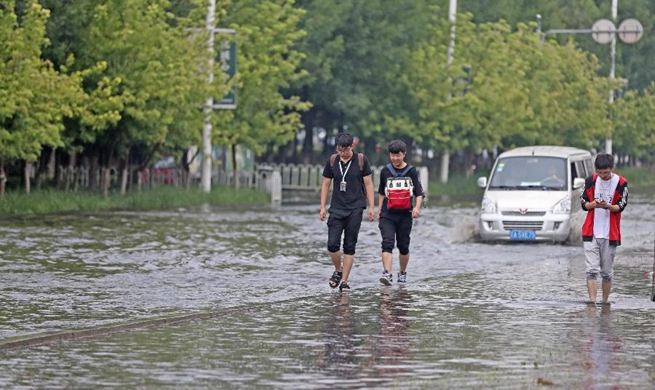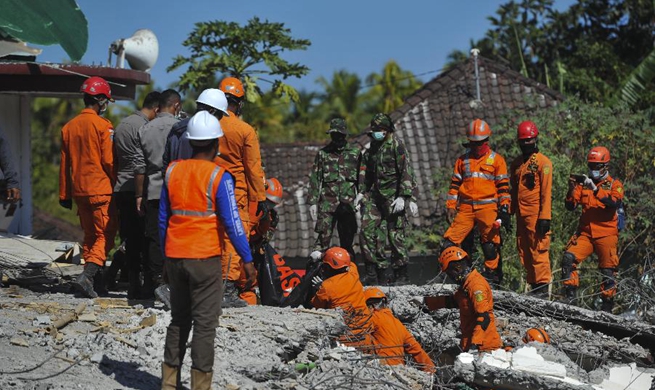NAIROBI, Aug. 7 (Xinhua) -- Twenty years ago at 10:30 a.m. (0730 GMT), the peace in the Kenyan capital of Nairobi was shattered when terrorists attacked the U.S. embassy.
At least 213 people and thousands of others were injured in the terror attack perpetuated by al-Qaida network, the worst on Kenyan soil.
A similar attack happened in Dar es Salaam, where 11 people were killed.
Today, the place where the embassy used to stand in Nairobi is a memorial park. A majority of those who visit are young people, 25 years and below.
Many of them have no recollection of what happened, some even why the site was converted into a park and why the day is significant to the East African nation.
As Kenyans commemorated the day on Tuesday, the older generation took time to educate the younger Kenyans on what the day is all about and why it is important for Kenya to fight terrorism and curb such attacks.
"When the bomb went off that morning, the windows, glasses and paper rain hit the streets in a radius of 1 km, the force of 900 kg bomb. Some 20 years on, the buildings have stood and so are the memories," wrote 'Kinyan Boy' on social media site Twitter, where most of the education happened, under the hashtag aug7at20.
"I was three years old when the attack happened. I grew up and found the place called bomb blast. Someone please educate me," noted Jeff. His comment attracted tens of answers as people volunteered with information.
"Al-Qaida terrorists attacked the U.S. embassy in Nairobi. Then it was located opposite railway terminus, not in Gigiri. Over 200 people were killed," offered Kimani.
At the site of the blast, families of those who died and injured, among dignitaries from the U.S. and Kenya gathered on Tuesday morning to pray and mark the day.
"I was working for the government in community area when the blast happened. I am retired but to date, when Aug. 7 reaches, I still remember the sound of the blast as if it is yesterday," said Joseph Moganyi at the site.
Moganyi noted that as the country marks the day, Kenyans should spare a thought for those who were injured and still bear the scars in any way.
"Those who suffered in the attack have never been compensated despite their lives being ruined. It is something both the Kenyan and U.S. governments should consider," said Moganyi, who worked at the social protection office.
The U.S. embassy in Nairobi asked Kenyans and Americans to remember and honor all who died or were injured.
Henry Wandera, an economics lecturer in Nairobi, said the blast in Nairobi exposed to the world the kind of enemy it was fighting.
"It is after the Nairobi and Dar es Salaam attacks that the fight against terrorism was stepped up and Al-Qaeda leader Osama bin Laden was marked a wanted man. It is good he paid the price of the attack with his life," he said.
He noted that while Kenya managed to curb terror attacks, the danger still lurks in the form of the Somali-based group al-Shabab.













